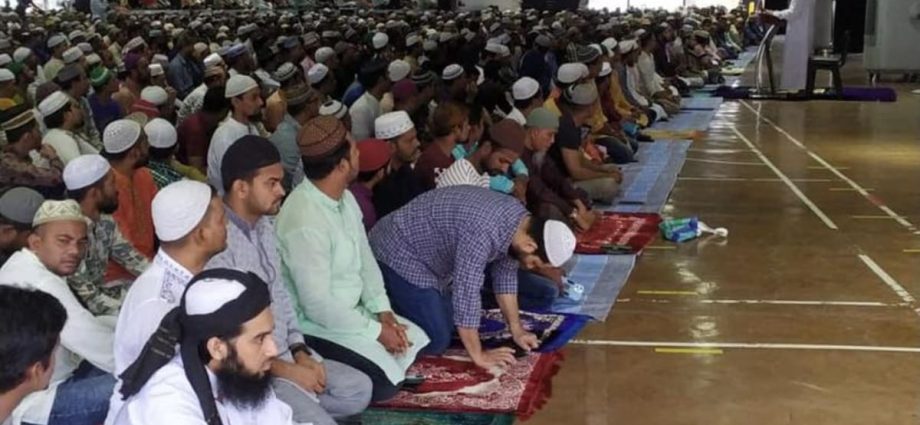
SINGAPORE: Migrant workers have “never been segregated” from the community or mosques, said the Islamic Religious Council of Singapore (MUIS) on Monday (Apr 17).
MUIS’ statement was in response to a circular from the Singapore Bangladeshi Society (SBS) to the Bangladeshi Muslim migrant worker community, which “generated a lot of disappointment and even anger” among netizens at how they “were being restricted to their dormitories” for Hari Raya Puasa prayers.
The letter, which was sent on behalf of MUIS, requested that Bangladeshi Muslim migrant workers celebrate Hari Raya Puasa “safely and responsibly” by performing the prayers at their respective dormitories.
“This will help to avoid overcrowding and road blockages and ensure the health and safety of everyone,” the circular read.
MUIS on Sunday apologised for the “phrasing of the notice” in response to comments on its Instagram page.
“It is never our intention to discriminate against our Muslim migrant brothers … These are simply efforts due to limited spaces in our mosques.
“We would like our Muslim migrant brothers to be comfortable when doing their ibadah (worship). Once again, apologies for the insensitive language. We will do better,” MUIS replied.
MUIS on Monday provided a “fuller picture” of the arrangements to provide all congregants with a comfortable and safe prayer experience.
“The Muslim transient worker community is a valued member of the Muslim community in Singapore.
“They have never been segregated from our community or our mosques,” it said in an Instagram post.
MUIS said that the migrant worker community are regular mosque-goers and volunteers, adding that their “support as volunteers (are) regarded as crucial by many mosques”.
MUIS also confirmed that migrant workers will have access to mosques, while there be additional congregations in dormitories and recreational centres.
“As with everyone else, we encourage them to make their prayer plans early and take advantage of lower-demand locations and sessions.”
MUIS said it “regrets that the wording of the circular” as it did not provide the full scope of arrangements made for the migrant worker community.
It also stated that it “truly appreciate(s)” that the Muslim community in Singapore shares its concern for the migrant worker community.

